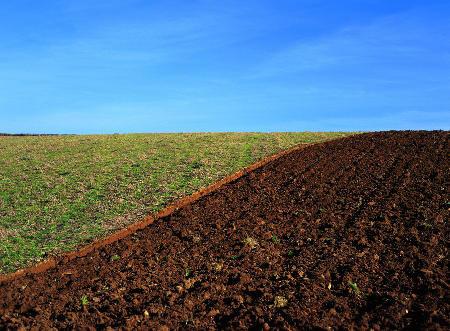The Missing Kingdom: Why Fungi Must Be Central to Conservation Strategy
28 December 2025
Published online 9 February 2017
Water scarcity and depleted soils are forcing the region to find sustainable ways to make use of its vast wastelands and water from the sea.

Here, Nature Middle East explores the many ways researchers are trying to bring the reality of the situation to policy-makers, while finding creative solutions.
In Urban living is starving the fertile land, Sarah Elmeshad looks at how Egypt, the most densely populated North African country, only utilizes 4% of its agricultural land. Her report draws on a new study that predicts urban expansion will result in a 1.8–2.4% loss of global croplands by 2030, 80% of which will occur in Asia and Africa.
Cropland loss means food loss, highlighting the need for plants that can be introduced to land traditionally unfit for wide-scale agriculture. Quinoa is a low-maintenance super food that can grow on poor land, and in the sand, using low-quality water, including wastewater and seawater.
In two reports, Pakinam Amer looks at the salt tolerant plant, and its potential for commercialization in a region that depends primarily on wheat and barley, among other major crops. NME reviews the latest research into quinoa, which presents a near complete sequencing of the crop’s genome for the first time by researchers from King Abdullah University of Science and Technology.
From scientists aiming to grow crops using seawater in Saudi Arabia, to others in the UAE and Qatar, trying to utilize seawater to raise fish and shrimp for food, then use the nutrient-rich wastewater to fertilize salt-tolerant plants, whose stalks can be eaten and whose seeds produce oil that can be refined into biofuel for airplanes. Nadia El-Awady in Solutions in salt talks to the scientists trying to set up systems that offer a promising, sustainable pathway for integrating aquaculture and seawater agriculture in arid regions.
The challenges are many, but with keen scientific efforts, there is hope.
Urban living is starving the fertile land
doi:10.1038/nmiddleeast.2017.28
Stay connected: